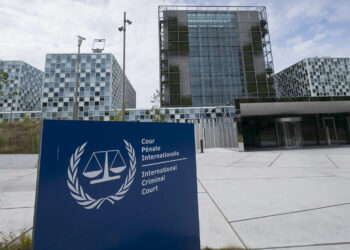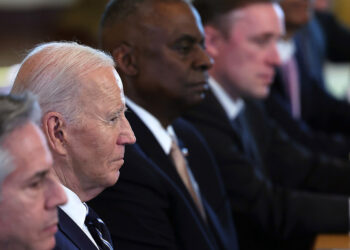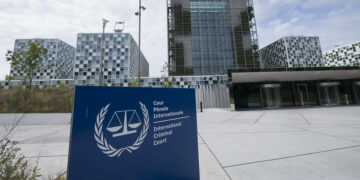Senator's resolution would requires State Department to investigate Saudi abuses
DAWN joined 53 organizations in a statement supporting S.Res.109, Senator Chris Murphy and Senator Mike Lee's resolution requesting a report by the State Department on Saudi Arabia's human rights practices, both within and outside of the country, including in the Saudi-led campaign in Yemen.
Read the full statement below.
53 Groups Urge Passage of Senate 502B Resolution on Saudi Arabia
The undersigned organizations (1) write to express our strong support for S.Res.109, Senator Chris Murphy and Senator Mike Lee's resolution requesting a report on human rights conditions in Saudi Arabia under Section 502B(c) of the Foreign Assistance Act (22 U.S.C. § 2304). The Biden administration has repeatedly promised a re-evaluation of the U.S.-Saudi relationship: during the presidential campaign, once in office, and most recently in October 2022 following the decision of OPEC+, led by Saudi Arabia and Russia, to decrease its oil production, thereby helping finance Russia's invasion of Ukraine. That re-evaluation has not taken place, forcing Congress to take up a needed debate. A Section 502B(c) resolution, if passed in the Senate, will reassert Congress's crucial oversight role, requires the executive branch to document the litany of destabilizing human rights abuses carried out by the Saudi government and justify its continued security assistance to Saudi Arabia despite these abuses, and force a long overdue public conversation about the U.S.-Saudi relationship.
Civil society reporting and successive State Department Country Reports on Human Rights Practices mandated under Section 502B have recorded widespread human rights abuses by the government of Saudi Arabia. (2) Many of those meet the definition of gross violations of human rights under Section 502B, including executions for nonviolent offenses, forced disappearances, torture, mistreatment of detainees, and arbitrary arrest and detention, among others. State Department reporting also details continued discrimination against women, a lack of accountability for gender-based violence, and severe restrictions on religious freedoms. Outside of the country, U.S. government and civil society reports have documented widespread civilian harm resulting from the Saudi-led campaign in Yemen, including possible war crimes and other violations of international humanitarian law; and numerous cases of transnational repression, including abductions, forced repatriations, and intimidation of dissidents outside of Saudi Arabia, most notably the murder of Washington Post columnist and U.S. resident Jamal Khashoggi.
In light of this track record, S.Res. 109 represents a welcome revitalization of Section 502B as a tool for congressional oversight of U.S. security assistance. If passed in the Senate, the resolution would require a report from the Department of State on Saudi Arabia's human rights practices within thirty days of passage. The resolution and the debate it generates would open the door to follow-on congressional action, including the possibility of an eventual joint resolution to restrict certain U.S. security assistance to Saudi Arabia based on congressional concerns. Use of the 502B(c) mechanism fills a critical gap in current oversight mechanisms such as the Leahy Law3 and Arms Export Control Act,4 providing Congress with a flexible tool to assert human rights oversight for U.S. arms sales and security assistance.
It is long past time for a public conversation about the U.S.-Saudi relationship and a reassertion of congressional oversight. Our organizations support this resolution and strongly urge its swift passage.
Signed,
- Action Corps
- Alliance of South Asians Taking Action
- ALQST for Human Rights
- American Friends Service Committee
- Amnesty International USA
- Antiwar.com
- Arms Control Association
- Cairo Institute for Human Rights Studies
- (CIHRS) Center for Civilians in Conflict (CIVIC)
- Center for International Policy (CIP)
- Center for Victims of Torture
- Church of the Brethren, Office of Peacebuilding & Policy Churches for Middle East Peace
- Common Defense
- Council on American-Islamic Relations (CAIR)
- Defense Priorities Initiative
- Demand Progress Action
- Democracy for the Arab World Now (DAWN)
- Environmentalists Against War
- Foreign Policy for America
- Freedom Forward
(1) While each signatory organization supports the resolution's passage, they do not necessarily take positions regarding all issues mentioned in the resolution's text, including the qualitative military edge of any country.
(2) See U.S. Dep't of State, Bureau of Democracy, H.R. & Lab., 2016 Country Reports on Human Rights Practices (2017); U.S. Dep't of State, Bureau of Democracy, H.R. & Lab., 2017 Country Reports on Human Rights Practices (2018); U.S. Dep't of State, Bureau of Democracy, H.R. & Lab., 2018 Country Reports on Human Rights Practices (2019); U.S. Dep't of State, Bureau of Democracy, H.R. & Lab., 2019 Country Reports on Human Rights Practices (2020); U.S. Dep't of State, Bureau of Democracy, H.R. & Lab., 2020 Country Reports on Human Rights Practices (2021); U.S. Dep't of State, Bureau of Democracy, H.R. & Lab., 2021 Country Reports on Human Rights Practices (2022); U.S. Dep't of State, Bureau of Democracy, H.R. & Lab., 2022 Country Reports on Human Rights Practices (2023).
(3) Whereas Section 502B prohibits security assistance to countries where the government consistently commits gross violations of human rights, the Leahy Law only prohibits assistance to specific units of foreign security forces credibly found to have committed a gross violation of human rights. The executive branch has interpreted Leahy vetting as applicable only to assistance provided using appropriated funds, exempting most arms sales from Leahy vetting.
(4) Joint resolutions of disapproval under the Arms Export Control Act can block major arms sales subject to congressional notification. However, Congress only has thirty days after notification to pass an AECA joint resolution of disapproval. In contrast, Congress controls the timing of Section 502B joint resolutions. Unlike Section 502B joint resolutions of disapproval, an AECA joint resolution only applies to particular notified sales, and it is limited to a simple block of such proposed sales. A far broader range of options is available with a Section 502B resolution to restrict security assistance.






































